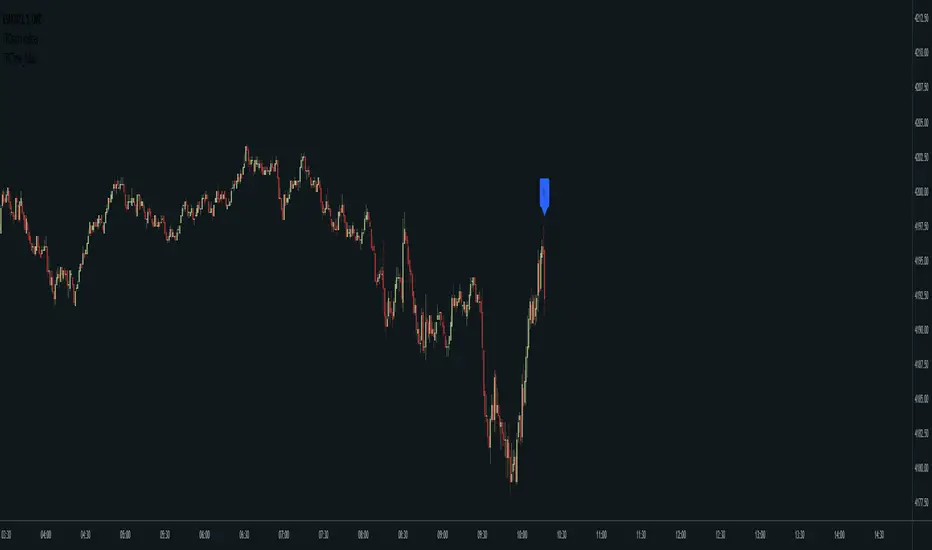PINE LIBRARY
Aggiornato TPCTime_Public

Library "TPCTime_Public"
Helpers for calculating time
getTimeOffset(interval, amount) Returns the length in ms for the given amount of the given interval.
Parameters:
interval: Interval to calculate, for example "D" or "60".
amount: Number of intervals for which to calculate the time range in ms.
Returns: The number of ms in the amount of the given interval.
isInTimeRange()
Helpers for calculating time
getTimeOffset(interval, amount) Returns the length in ms for the given amount of the given interval.
Parameters:
interval: Interval to calculate, for example "D" or "60".
amount: Number of intervals for which to calculate the time range in ms.
Returns: The number of ms in the amount of the given interval.
isInTimeRange()
Note di rilascio
v2Added:
getPeriodAsMs()
isChildPeriod()
Updated:
getTimeOffset()
isInTimeRange()
Note di rilascio
v3Note di rilascio
v4Added:
getHumanDayOfWeek(timestamp, isShort, isWrap, startWrap, endWrap)
Returns the human-readable day of week for the given time.
Parameters:
timestamp: The UNIX timestamp for which to return the day of the week.
isShort: Whether to return a short date, e.g. "Mo" instead of "Monday"
isWrap: Whether to wrap the date, e.g. placing it inside characters such as brackets to result in [Mo]
startWrap: Start wrap character, e.g. an opening bracket.
endWrap: End wrap character, e.g. a closing bracket.
Returns: The number of ms in the given period.
Note di rilascio
v5Added:
isInTimeRangeFromCurrentTime(period, periodCount)
Returns true if the current time is greater than or equal to the given periodCount of periods, else returns false.
Parameters:
period (string): Period to calculate with, for example "D" or "60".
periodCount (int): Amount of given periods to test.
Returns: True if the current time is greater than or equal to the given periodCount of periods, else returns false.
Libreria Pine
Nello spirito di TradingView, l'autore ha pubblicato questo codice Pine come libreria open source affinché altri programmatori della nostra comunità possano riutilizzarlo. Complimenti all'autore! È possibile utilizzare questa libreria privatamente o in altre pubblicazioni open source, ma il riutilizzo di questo codice nelle pubblicazioni è soggetto al Regolamento.
Declinazione di responsabilità
Le informazioni e le pubblicazioni non sono intese come, e non costituiscono, consulenza o raccomandazioni finanziarie, di investimento, di trading o di altro tipo fornite o approvate da TradingView. Per ulteriori informazioni, consultare i Termini di utilizzo.
Libreria Pine
Nello spirito di TradingView, l'autore ha pubblicato questo codice Pine come libreria open source affinché altri programmatori della nostra comunità possano riutilizzarlo. Complimenti all'autore! È possibile utilizzare questa libreria privatamente o in altre pubblicazioni open source, ma il riutilizzo di questo codice nelle pubblicazioni è soggetto al Regolamento.
Declinazione di responsabilità
Le informazioni e le pubblicazioni non sono intese come, e non costituiscono, consulenza o raccomandazioni finanziarie, di investimento, di trading o di altro tipo fornite o approvate da TradingView. Per ulteriori informazioni, consultare i Termini di utilizzo.